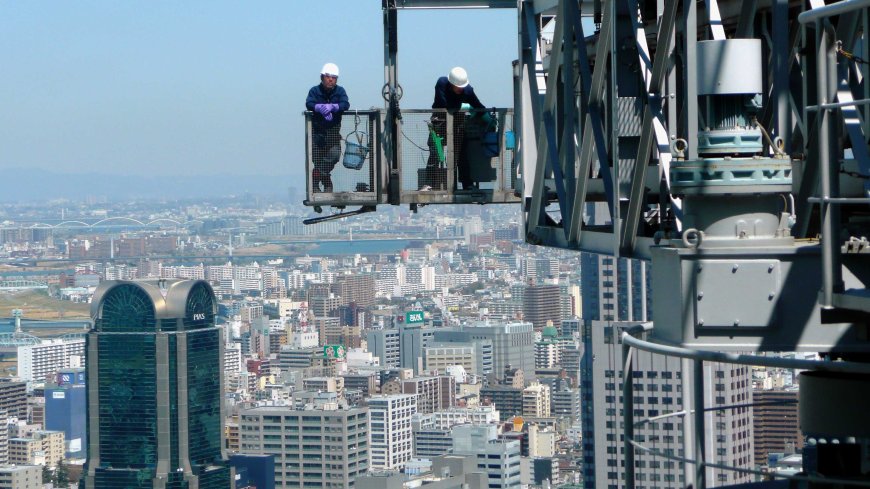Is the "Foreign Trainee System" a Modern Form of Slavery?
The Foreign Trainee System has sparked controversy, with some dubbing it a gateway to opportunity and others condemning it as a modern form of slavery. Beneath the veneer of cultural exchange lies a complex web of exploitation and vulnerability.

Opportunity or Exploitation
In the intricate web of global labor systems, the "Foreign Trainee System," known as 外国人研修生 (Gaikokujinkenshūsei) in Japanese, has become a subject of intense scrutiny and debate. Originally designed to facilitate technical and cultural exchange, the system has faced accusations of exploitation and abuse. But is it truly a modern form of slavery?

The Promise of Opportunity
The Foreign Trainee System was conceived with noble intentions. It aimed to foster international cooperation, allowing individuals from various countries to train and work in Japan, thereby enriching their skills and experiences. For many participants, it presents an opportunity to learn advanced techniques in industries such as manufacturing, agriculture, and healthcare.

Exploitation Disguised as Opportunity
However, beneath the surface lies a darker reality. Numerous reports have surfaced detailing the exploitation of trainees within the system. Many participants find themselves subjected to harsh working conditions, long hours, low wages, and limited rights. Some are even forced to endure physical and verbal abuse, with little recourse for justice.

Systemic Vulnerabilities
The structure of the Foreign Trainee System itself contributes to its potential for exploitation. Trainees are often tied to specific employers, leaving them vulnerable to exploitation and unable to seek alternative employment or challenge unfair treatment. Moreover, the lack of effective oversight and regulation allows unscrupulous employers to take advantage of these vulnerabilities with impunity.

Cultural and Linguistic Barriers
For foreign trainees, navigating the complexities of life and work in a foreign country can be daunting. Cultural and linguistic barriers exacerbate their vulnerability, making it difficult to assert their rights or seek assistance when faced with exploitation or abuse. Many find themselves isolated and powerless in unfamiliar surroundings.

The Role of Intermediaries
Intermediary organizations play a pivotal role in facilitating the recruitment and placement of foreign trainees. While some act ethically, others exploit their position for financial gain, charging exorbitant fees and providing false promises to unsuspecting participants. These intermediaries often operate with little oversight, further perpetuating the cycle of exploitation.

Calls for Reform
In recent years, there has been growing pressure to reform the Foreign Trainee System and address its inherent flaws. Advocacy groups, human rights organizations, and international bodies have called for stronger regulations, improved oversight, and enhanced protections for participants. Efforts to raise awareness about the plight of foreign trainees have gained traction, shining a spotlight on the need for change.

Toward a Fairer Future
While the challenges facing the Foreign Trainee System are significant, there is hope for a fairer and more equitable future. Reforms aimed at strengthening protections for participants, increasing transparency, and holding accountable those who exploit foreign trainees are essential steps toward addressing the systemic issues within the system. Additionally, fostering a culture of respect for the rights and dignity of all workers, regardless of their nationality or background, is crucial in ensuring a truly inclusive and just society.

Complexities of Japan's Foreign Trainee System
In the ongoing debate surrounding the Foreign Trainee System, the question of whether it constitutes a modern form of slavery is a complex and contentious one. While it was originally intended to promote international cooperation and mutual benefit, the reality for many participants is far from the promised opportunity. Exploitation, abuse, and systemic vulnerabilities plague the system, highlighting the urgent need for reform. By addressing these issues and prioritizing the rights and well-being of foreign trainees, we can strive towards a future where all workers are treated with dignity and respect, regardless of their nationality or origin.
Find Cheap Flight Tickets to any Destinations in Japan and the Philippines
Nipino.com is committed to providing you with accurate and genuine content. Let us know your opinion by clicking HERE.































































